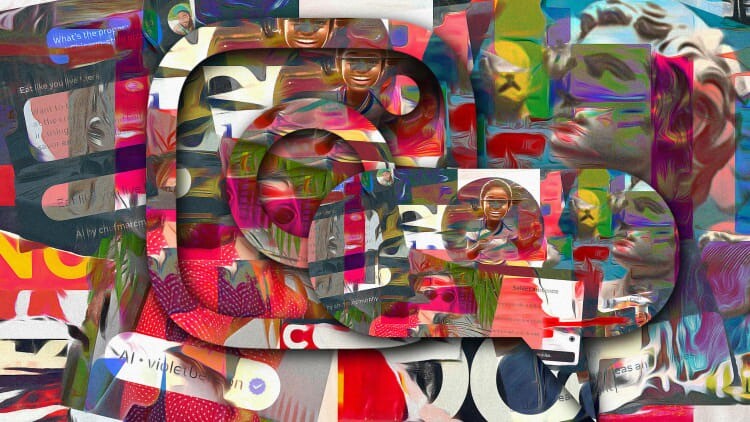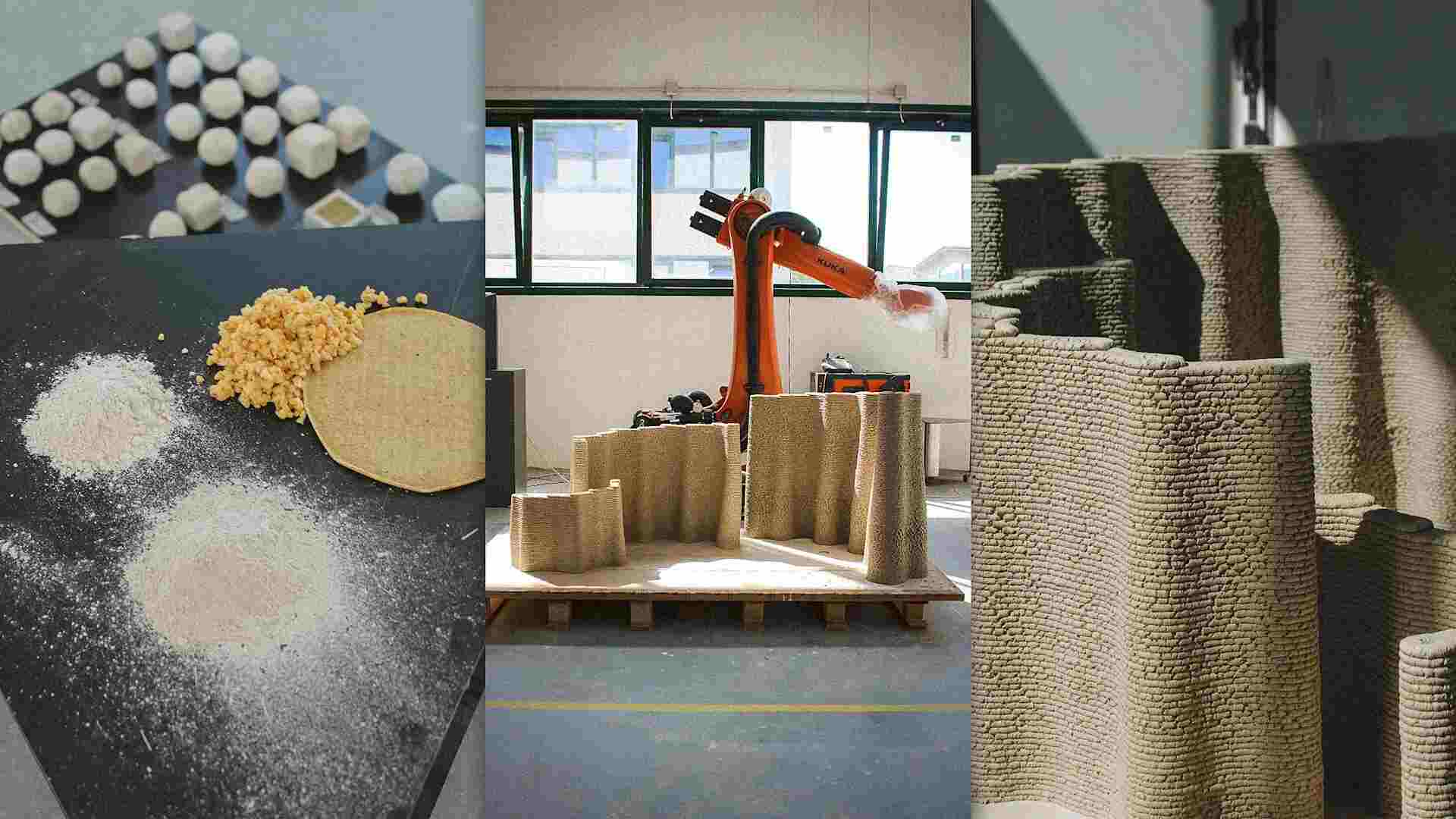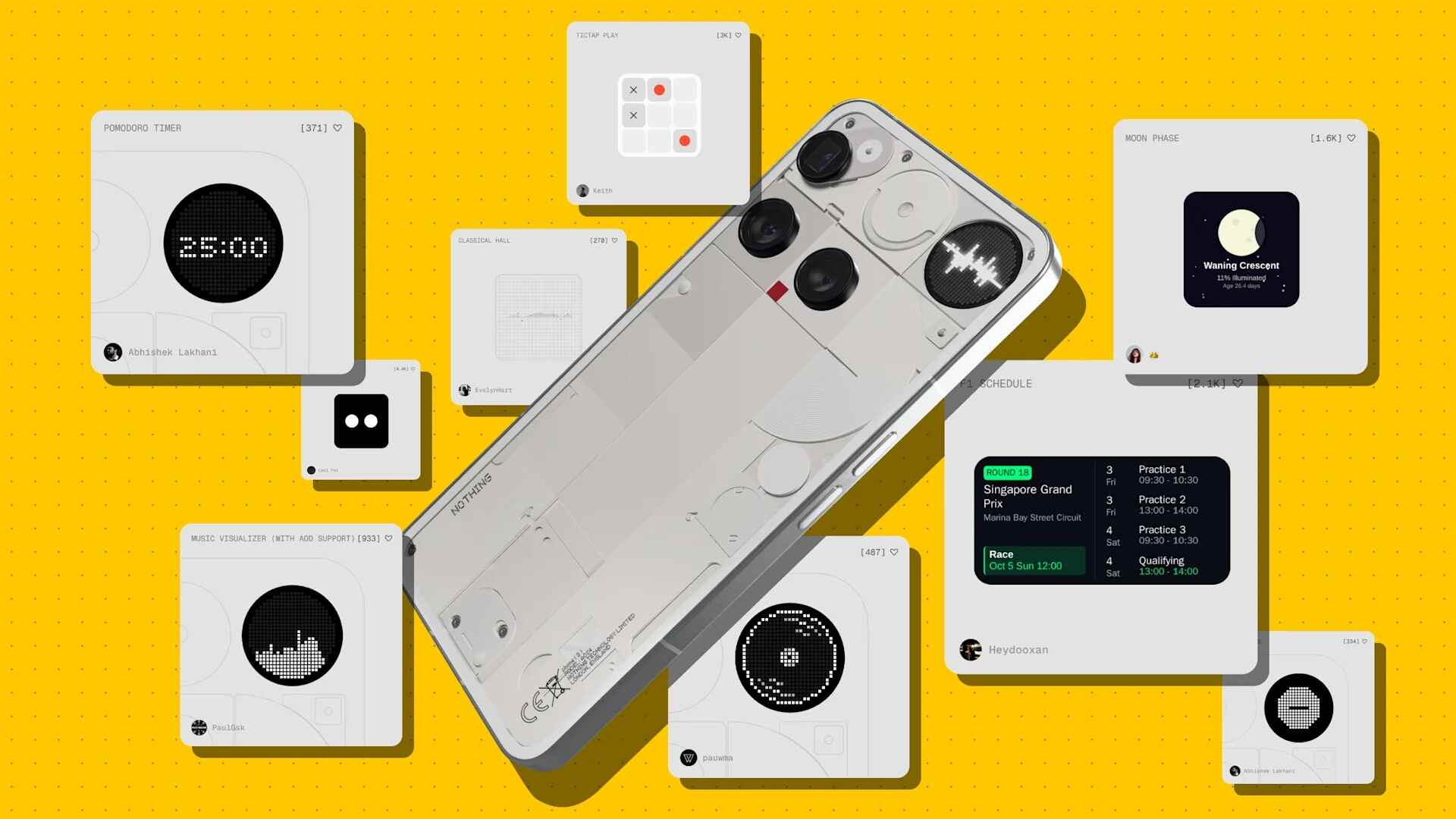- | 9:00 am
Instagram owned real friendships. Its new AI chatbots encourage fake ones
AI tools have real e-comm utility. So why is Meta leaning into its parasocial applications?

Anyone in the U.S. who’s logged onto Instagram in the last few days has likely encountered a new feature within the app’s profile menu, highlighted with a bright blue tag and labeled “AI Studio.” Clicking on the icon leads users to Meta’s most recent AI tools engagement play: A platform that lets users create a chatbot on any topic of their choosing, and lets influencers and businesses build an AI chatbot version of themselves to DM with their fans.
AI Studio’s launch comes soon after Meta abandoned its last Insta chatbot endeavor, which encouraged users to message the AI alter-egos of celebrities including Kendall Jenner, Tom Brady, and Paris Hilton. According to a report from The Information, Meta officially shut down the project in late July, and the company began rolling out early tests of AI Studio around that same time.
The new platform seems like a precursor to the use of AI chatbots as an e-commerce tool—one that could let users ask their favorite creators about their outfits, makeup, and other affiliated products. Instagram has long been tinkering with its shoppable features, from trying out different formats for the in-app Instagram Shop to providing more creator-driven ad opportunities on Reels.
But, in its current form, AI Studio is repeating some of the same marketing mistakes as Meta’s scrapped AI celebrity roster. Rather than emphasizing AI Studio’s utility, like a smoother in-app shopping experience, Meta is highlighting how the platform could allow creators to create a “true extension” of themselves and achieve “deeper engagement” with their audiences. It’s a somewhat dystopian pitch that takes parasocial relationships to their final form, veering past authentic audience connection and straight into the uncanny valley.
Building a DIY AI chatbot
AI Studio has two main selling points. First, it invites users to customize their own AI character “based on their interests” (like a chef character who can recite recipes—or, if we want to be honest about how the internet will use this, a goth bartender girlfriend). Second, AI Studio is gradually introducing a feature that lets anyone with a professional Instagram account “create an AI that sounds like you, based on your Instagram content and information,” per the website.

I started out by testing the DIY AI character option. The interface asks you to either select an existing template, like “Attentive listener” or “AI pet,” or start your own character from scratch. I chose the latter, and asked AI Studio to build me a companion who would offer advice on my career and love life, but only in Middle English. The platform then gave me more options to train my chatbot—Wise Walter—with a list of customizable instructions and capabilities.
This UX all worked smoothly, though I will note that the Middle English could’ve been more period accurate (alas). Once you’re done with your custom bot, you can publish it on the platform and share it through Insta stories, or on your profile. Ultimately, this was fun, but not anything groundbreaking. To me, it functioned like a version of ChatGPT with a few extra steps.
Testing out AI Studio’s e-commerce potential
To explore the e-commerce potential behind these tools, I quizzed an existing chatbot that specializes in style. I sent it several Instagram posts and asked the bot to identify the clothes pictured, including in this post from Emma Chamberlain. The bot correctly identified her loafers as Prada (though it referred to them as boots) and noted that, based on her Instagram stories, the rest of the look was from Urban Outfitters (difficult to fact-check, but seems plausible).

While my AI stylist seemed a bit confused as to the difference between various forms of footwear and the definition of “distressed” denim, this application of AI Studio would make sense as feature for Meta to market, especially if it’s able to become just a bit more sophisticated. If users could reply to Instagram stories with questions for the AI bot about an outfit or location, for example, that seems like a tool that would save users from an extensive hunt on Google.
Instead of pointing out capabilities that will have a concrete application for users, though, Meta seems set on pitching AI Studio as the next frontier for influencers to build personal connections with their fans. It’s a common mistake that other Big Tech players, like Google, have also made in recent AI ads: Assuming that people want AI tools to help them in personal, rather than practical, ways. This point of view can often stoke existing existential fears about how AI will change human relationships.
In a recent YouTube interview, Meta CEO Mark Zuckerberg noted that DMs are one of Instagram’s fastest-growing features, and the new platform will tap into that. “We’re making it so that people are going to be able to craft a persona for an AI version of themselves that’s going to help them interact with all the incoming DMs that your community is sending you,” Zuckerberg said. He went on to explain that plenty of fans might want to send their favorite personalities a DM, but are scared off by the possibility that they might not respond.
Zuckerberg’s comment begs an obvious question: Is that really a bad thing? Should we expect to have constant access to the influencers who already share their lives with the internet as a career? And, more to the point, does anyone really want a DM from their favorite online icon if, deep down, they know they’re really just talking to a robot?
AI Studio traipses straight into uncanny valley territory
I have never met nor spoken with the Russian-American influencer and podcast host Violetta Elaia Benson, but this morning she told me that she enjoys reading, her favorite K-dramas are Crash Landing on You and Vagabond, and her dad taught her to play chess when she was five. Or, at least, the AI version of Benson told me that.

When you start a new message with an influencer’s AI chatbot, it’s connected directly to their personal account, so, when I started a conversation with Benson, Instagram gave me a heads up that she could technically read the thread at any time. It also warned, “Some messages generated by AI may be inaccurate or inappropriate.” I tried to make my own AI creator bot (for the sake of science, obviously), but I wasn’t able to find the option in my account, possibly because the feature is in beta and hasn’t been made available to me yet.
The AI Studio website provides some brief context into the design process: “Once you create your AI, you can chat with it and ask questions you think your fans might ask to see how it responds. You can also add facts, links you’d like your AI to share and topics you’d like your AI to avoid.” And, based on Meta’s terms of agreement, the AI chatbot seems to build your persona using your own input of information, as well as by pulling existing content from your Instagram and from searching third-party websites.
Compared to chatting with a bot inspired by a celebrity, I found talking to Benson’s AI alter-ego to be notably creepier. There’s something about talking to a bot, inspired by a real person, theoretically right in front of said person, that makes the whole thing feel like it’s crossed some sort of unspoken social boundary.
And it’s not like the concept of friendship with AI bots is a far-fetched fantasy, either; in a recent interview for The Verge‘s Decoder podcast, the CEO of chatbot maker Replika essentially ok’d marriage to chatbots. It’s not great that that interview was called to mind. When I’m exploring Instagram’s new AI tools, I should be thinking about how they might make the app easier and more fun, not ruminating on the possibility of human-robot marriage.
Instagram used to be a platform that encouraged keeping up with your real-life friends through photos—now, you need an AI Studio robot mediator to achieve a semblance of connection to a person you’ve never met.







































